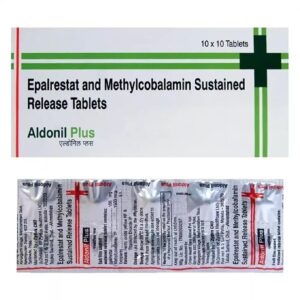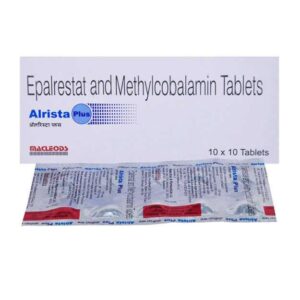EPALRESTAT
EPALRESTAT: Epalrestat is a drug that is used to treat diabetic peripheral neuropathy (DPN). It belongs to a class of medications known as aldose reductase inhibitors. DPN is a common complication of diabetes that affects the nerves, leading to pain, tingling, and numbness in the hands and feet.
The mechanism of action of epalrestat involves inhibiting the enzyme aldose reductase. This enzyme plays a role in the development of DPN by converting glucose to sorbitol, which can accumulate in the nerves and cause damage. By inhibiting aldose reductase, epalrestat helps to prevent the accumulation of sorbitol and reduce nerve damage associated with DPN.
The usual recommended dose of epalrestat is 150 mg per day, taken orally with meals. However, the exact dosage may vary depending on individual patient characteristics and the severity of the condition. It is important to follow the dosage instructions provided by your doctor.
Like any medication, epalrestat may cause side effects. Common side effects that have been reported include gastrointestinal symptoms such as nausea, vomiting, and diarrhea. Other less common side effects may include skin rash, itching, headache, dizziness, and abnormal liver function tests. It is important to inform your doctor if you experience any persistent or severe side effects.
Overall, epalrestat is an effective drug for the treatment of diabetic peripheral neuropathy. However, it is important to consult with a healthcare professional before starting this medication to determine if it is suitable for your specific condition and to discuss any potential risks or interactions.


